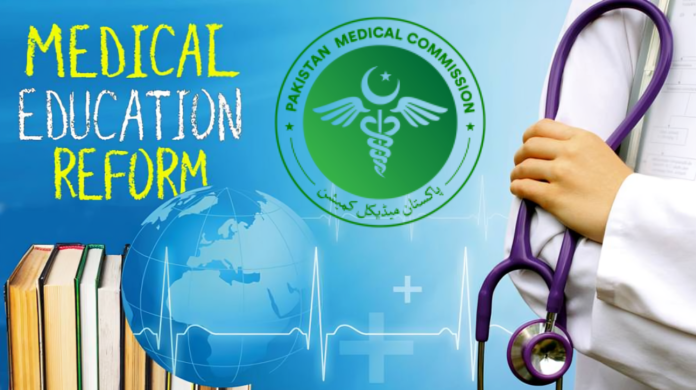Medical Education Reforms in Pakistan are underway as the Pakistan Medical and Dental Council (PMDC) plans to overhaul the Medical and Dental College Admission Test (MDCAT) to enhance education standards.
This initiative aims to address longstanding criticisms of the MDCAT model, particularly concerns over its fairness, transparency, and alignment with global best practices. The reforms reflect PMDC’s commitment to ensuring high-quality medical education in the country.
Key Highlights of MDCAT Reforms
1. Standardization of the Curriculum
A unified syllabus will be implemented across all provinces. Equal opportunities will be provided to students, eliminating disparities caused by regional curriculum differences.
2. Focus on Analytical Thinking
Exam questions will focus on assessing students’ critical thinking abilities and their problem-solving aptitude. This shift reduces reliance on rote memorization, better preparing students for medical studies.
3. Improved Test Administration
Digital platforms will be introduced to ensure transparency and efficiency. A strict monitoring mechanism will be in place to maintain integrity throughout the process.
Objectives of Medical Education Reforms in Pakistan
Enhancing Admission Standards
- The revamped MDCAT model aims to create a fair and transparent selection process.
- A uniform evaluation system will boost public trust in medical admissions.
Aligning with Global Practices
- The reforms are designed to meet international medical education standards.
- Graduates from Pakistan will be better equipped to compete globally in healthcare sectors.
Impact of Reforms on Students
Equal Access to Education
Students from all regions will have access to a standardized admission process. These changes will reduce the advantage previously held by those with access to better resources.
Development of Competent Professionals
By fostering critical thinking skills, the reforms will produce graduates capable of handling real-world challenges in healthcare.
Broader Implications for the Healthcare System
- The improved MDCAT model is expected to enhance the overall quality of medical education.
- A transparent system will contribute to producing highly qualified doctors, strengthening Pakistan’s healthcare system.
The medical education reforms in Pakistan reflect the PMDC’s dedication to advancing the country’s healthcare sector. By addressing systemic challenges and aligning with global standards, these changes promise a brighter future for medical aspirants and the nation’s healthcare system.


